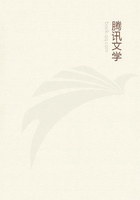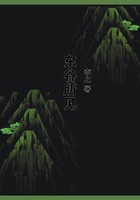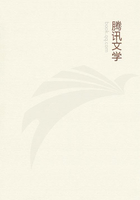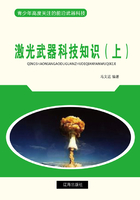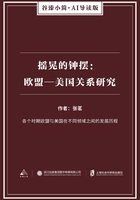Jacobi then passes on from this point to the second of his main propositions, “The unconditioned is called the supernatural. Now since everything which lies outside the connection of what is conditioned, of what is naturally mediated, also lies outside the sphere of our clear and certain knowledge, and cannot be understood through conceptions, the supernatural cannot be accepted in any other way by us than that in which it is given to us - namely as a fact. It is! This supernatural, this essence of all essence, all tongues join in proclaiming to be God."(9) God as the universal, the true, is here taken in the sense of a spiritual generally, in the sense of power, wisdom, &c. That God is, however, is to Jacobi not absolutely true; for to knowledge pertains His objective absolute existence, but He cannot be said to be known. It is thus merely a fact of my consciousness that God exists independently apart from my consciousness; this, however, is itself maintained through my consciousness; the subjective attitude of thought is thus to Jacobi the element of most importance. The consciousness of God, which is in our consciousness, is, however, of such a nature that along with the thought of God we have immediately associated the fact that He is. The existence of the supernatural and super-sensuous, to which the thought of man regarding the natural and finite passes on, is just as certain to Jacobi as he is himself. This certainty is identical with his self-consciousness; as certainly as I am, so certainly is God (Jacobi's Werke, Vol. III. p. 35). Since he thus passes back into self-consciousness, the unconditioned is only for us in an immediate way; this immediate knowledge Jacobi calls Faith, inward revelation (Werke, Vol.
II. pp. 3, 4); to this appeal can be made in man. God, the absolute, the unconditioned, cannot, according, to Jacobi, be proved. For proof, comprehension, means to discover conditions for something, to derive it from conditions; but a derived absolute, God, &c., would thus not be absolute at all, would not be unconditioned, would not be God (Jacobi's Werke, Vol. III. p. 7).
This immediate knowledge of God is then the point which is maintained in the philosophy of Jacobi. The faith of Kant and of Jacobi are, however, different. To Kant it is a postulate of reason, it is the demand for the solution of the contradiction between the world and goodness; to Jacobi it is represented on its immediate knowledge.
Everything which has been written upon God since Jacobi's time, by philosophers such as Fries and by theologians, rests on this conception of immediate intellectual knowledge, and men even call this revelation, though in another sense than the revelation of theology. Revelation as immediate knowledge is in ourselves, while the Church holds revelation to be something imparted from without.(10) In the theological sense, faith is faith in something which is given to us through teaching. It is a sort of deception when faith and revelation are spoken of and represented as if faith and revelation in the theological sense were here in question; for the sense in which they are used, and which may be termed philosophic, is quite a different one, however pious an air may be assumed in using the terms. This is Jacobi's standpoint, and whatever is by philosophers and theologians said against it, this teaching is eagerly accepted and disseminated. And nowhere is there anything to be found but reflections originating from Jacobi, whereby immediate knowledge is opposed to philosophic knowledge and to reason; and people speak of reason, philosophy, &c., as a blind man speaks of colours. It is, indeed, allowed that a man cannot make shoes unless he is a shoemaker, even although he have the measure and foot, and also the hands. But when Philosophy is concerned, immediate knowledge signifies that every man as he walks and stand is a philosopher, that he can dogmatize as he chooses, and that he is completely acquainted with Philosophy.
By reason, however, mediate knowledge merely is on the one hand understood, and on the other the intellectual perception which speaks of facts (supra, pp. 413-415). In this respect it is true that reason is the knowledge and revelation of absolute truth, since the understanding is the revelation of the finite (Jacobi's Werke, Vol. II. pp. 8-14, 101). “We maintained that two different powers of perception in man have to be accepted: a power of perception through visible and tangible and consequently corporeal organs of perception, and another kind of power, viz. through an invisible organ which in no way represents itself to the outward senses, and whose existence is made known to us through feeling alone. This organ, a spiritual eye for spiritual objects, has been called by men - generally speaking - reason. He whom the pure feelings of the beautiful and good, of admiration and love, of respect and awe, do not convince that in and with these feelings he perceives something to be present which is independent of them, and which is unattainable by the outward senses or by an understanding directed upon their perceptions alone - such an one cannot be argued with” (Jacobi's Werke, Vol. II. pp. 74, 76). But by faith Jacobi likewise understands all that has immediacy of Being for me: “Through faith we know that we have a body, we become aware of other actual things, and that indeed with the same certainty with which we are aware of ourselves. We obtain all conceptions through the qualities which we receive and accept, and there is no other way of attaining real knowledge; for reason, when it begets objects, begets phantoms of the brain. Thus we have a revelation of nature."(11) Hence the expression faith, which had a deep significance in religion, is made use of for different contents of every kind;this in our own time is the point of view most commonly adopted.

